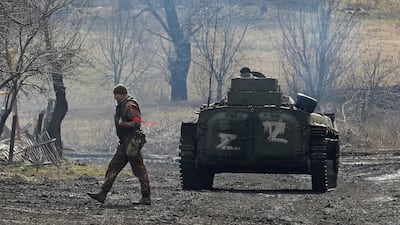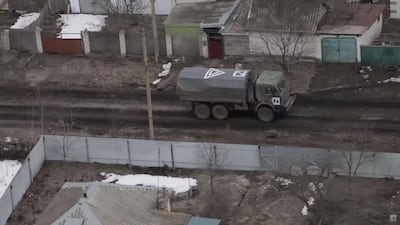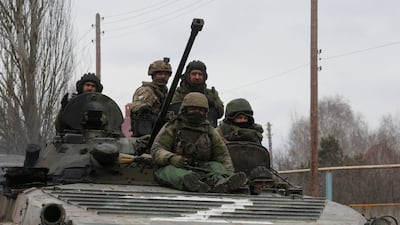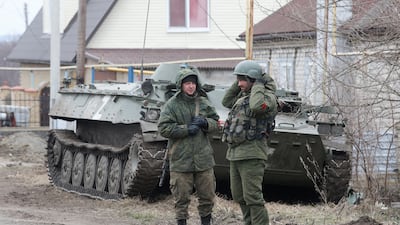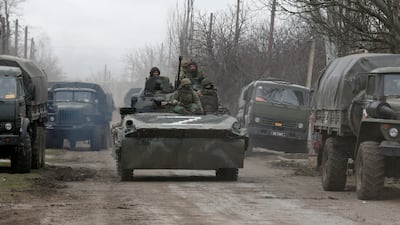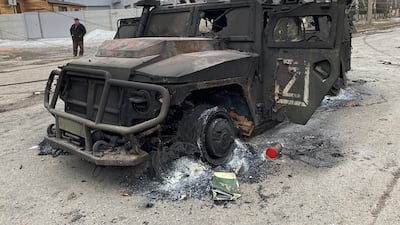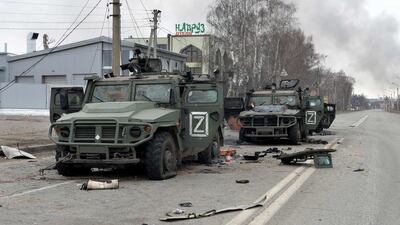Live updates: follow the latest news on Russia-Ukraine
Security services in Germany are monitoring the use of the pro-Russian Z symbol as Ukraine urged its allies to ban an emblem it described as showing “public support of barbarism”.
A symbol resembling the Roman letter, which does not exist in the Cyrillic alphabet, was painted on Russian tanks when they rolled into Ukraine. It has also been adopted by civilians as a show of support for Moscow’s troops.
One suggestion is that it was painted on Russian tanks to distinguish them from those of Ukrainian forces.
The symbol has been compared to Nazi and communist iconography and was worn by presenters at a pro-war rally addressed by Russian President Vladimir Putin in Moscow.
On Tuesday, Dmytro Kuleba, Ukraine’s Foreign Minister, urged countries to criminalise what he said was a symbol of support for the month-long invasion.
“Z means Russian war crimes, bombed-out cities, thousands of murdered Ukrainians. Public support of this barbarism must be forbidden,” he said.
Several German states have already moved to ban the symbol. On Monday, the federal interior ministry announced that it could be treated as a criminal show of support for the invasion.
“The Russian war of aggression against Ukraine is an illegal act. Anyone who openly endorses this war is liable to prosecution,” the ministry said.
This could include the use of the Z symbol which security services have put “in their sights”, it said.
The city government in Berlin said people could be jailed for up to three years or be fined for displaying the Z.
Its meaning has been the subject of speculation since it was spotted on Russian vehicles.
The sign has variously been interpreted as an abbreviation of the Russian term “za pobedu”, meaning victory, or for “zapad”, meaning west.
Ukraine’s ambassador to the UN, Sergiy Kyslytsya, suggested it could stand for “zveri”, meaning beasts. He compared it to the name Station Z given by the Nazi SS to part of the Sachsenhausen concentration camp.
In Lithuania this week, MPs introduced legislation to equate the Z with banned Nazi and Soviet symbols to counter what they called propaganda.
Swiss insurance company Zurich said it was removing its own Z logo from social media because it did not want to be misinterpreted as supporting Russia in the conflict.
In the Cyrillic alphabet used by some Slavic languages, including Russian and Ukrainian, the “Z” sound is represented by what looks like the number 3.


